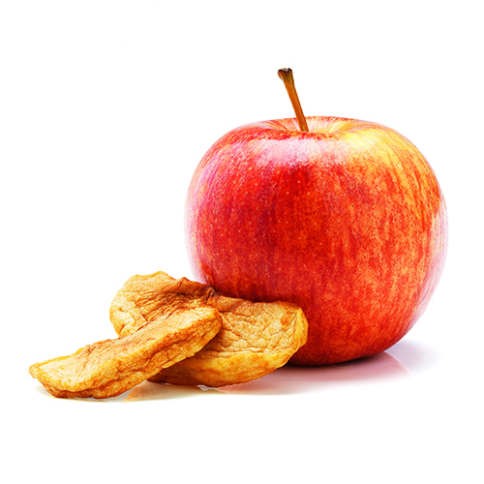
Export Dried Apple
CATALOGUE
Apples are a popular fruit, containing antioxidants, vitamins, dietary fiber, and a range of other nutrients. Due to their varied nutrient content, they may help prevent several health conditions.
Dried apples are tasty and healthy snack. Also known as apple rings, it is loaded with natural sweetness. The food drying is the oldest method to preserve food so that it could have later use. Drying discards the moisture from food so that yeast, bacteria and mold cannot grow and spoil food.
The dried apples are chewy, soft and lack moisture due to the process of drying. It is tan to light brown in color. The core of apples are eliminated, then peeled and sliced latitudinally for making ring like shape.
Dried apples are an excellent source of both types of fiber.
Dried apples are also loaded with antioxidants that protect cells from damage made by free radicals. It possesses immune boosting vitamins as well as minerals such as iron and calcium.
History of dried apple
Possibly apples have been found two to ten million years ago. Sun-drying fruits are a popular method of preserving food since colonial times and have been in practice since the Stone Age. In 1620, apples were brought by Pilgrims to North America and used for making pie, cider, vinegar, and butter or also consumed in dried form. The production of apples per year is about 3.41 million tons in Iran, which about 28.5% of it belongs to the province of Azerbaijan.
Dried apple Nutrition Facts
-
Calories: 69
-
Protein: 0.3 gram
-
Fat: 0.1 gram
-
Carbohydrates: 19 grams
-
Fiber: 2.5 grams
-
Sugar: 16 grams
-
Sodium: 25 mg
-
Calcium: 4 mg
Sepcotrading company exports the best kind of Iranian dried fruits like dry apples at the most affordable prices all around the world.
Contact Now
main health benefits of dried Apples
Eating dehydrated fruit is one convenient way to reach your recommended fruit intake, which is 2 cups daily for men and 1.5 cups for women, recommended by the U.S. Department of Agriculture. Dehydrated apples provide a source of essential nutrients for your health and contribute to a healthy diet.
Fiber
One of the main benefits of dehydrated apples is their dietary fiber content. A half-cup serving of the dried fruit contains 3.7 grams of dietary fiber. Fiber helps keep you regular — it bulks up and softens your stools to prevent constipation. It also slows digestion, preventing blood sugar spikes that leave you tired and hungry shortly after your meal. Since fiber helps keep you satisfied after a meal, dehydrated apples make for a filling snack.
Vitamins
Dehydrated apples also provide a source of vitamins that benefit your health. The apples contain very small amounts of other vitamins C and A, two nutrients that keep your skin and bones strong and healthy. They contain several B vitamins, which collectively support your metabolism and nourish your liver and skin. vitamins help you make neurotransmitters, chemicals required for brain function.
Minerals
Dehydrated apples also benefit your health due to their mineral content. Each half-cup serving contains 4 percent of your daily recommended intake of potassium, a mineral essential to nerve and brain function, according to the Linus Pauling Institute. Dehydrated apples also contain a small amount of iron — 8 percent of the recommended daily intake for men or 3 percent for women, according to the Institute. You use this iron to make new red blood cells, so your tissues can get a fresh supply of oxygen from your bloodstream. Eating dehydrated apples provides small amounts of other minerals, including copper, manganese, and selenium.
FAQ
Dried fruit is relatively high in calories and sugar. Common dried fruits contain 38–66% sugar, and eating too much of them may contribute to weight gain and various health problems.
Dried apples are nutritious, having no fat and plenty of vitamins, minerals, antioxidants and fiber. They are the fruit with much of its water removed. … One apple equals around 5 or 6 rounds of dried apple but you won’t feel as full afterwards which is a danger for anyone on a diet.
However, when comparing the standard serving sizes, dried and fresh varieties contain equivalent amounts of calories and sugar. For example, one serving of dried apples, ¼ cup, contains 52 calories and 12 grams of sugar. One serving of fresh apples, about 1 cup, contains 65 calories and 13 grams of sugar.
Since dehydrated fruit loses volume during the dehydration process, you should consider a half cup of dehydrated apples the equivalent of a 1-cup serving of fruit. Dehydrated apples provide a source of essential nutrients for your health and contribute to a healthy diet.





